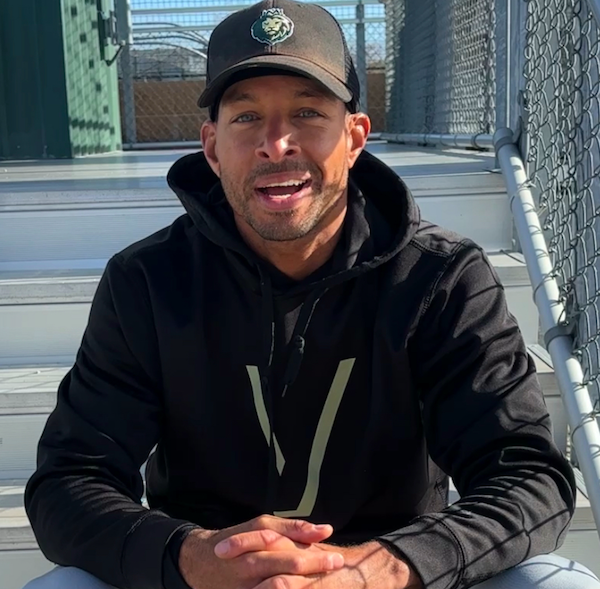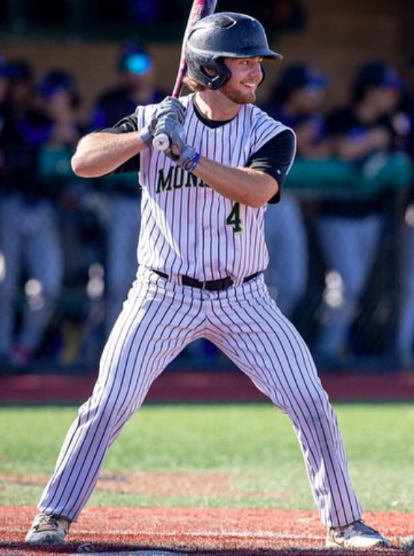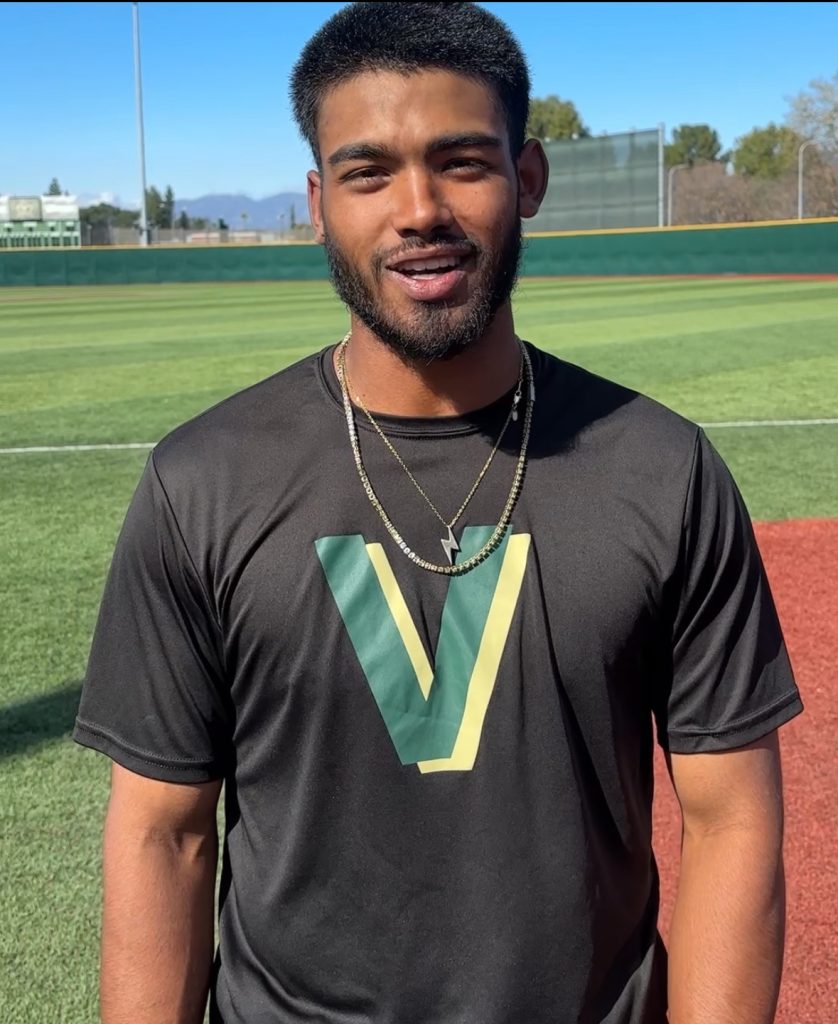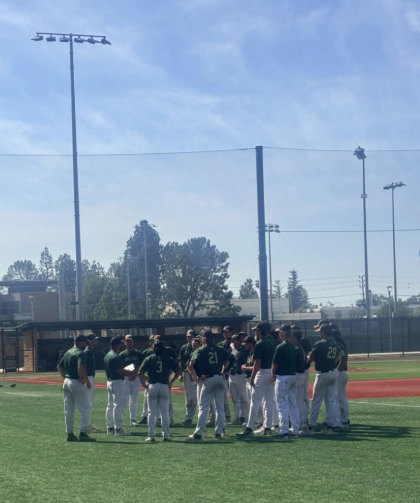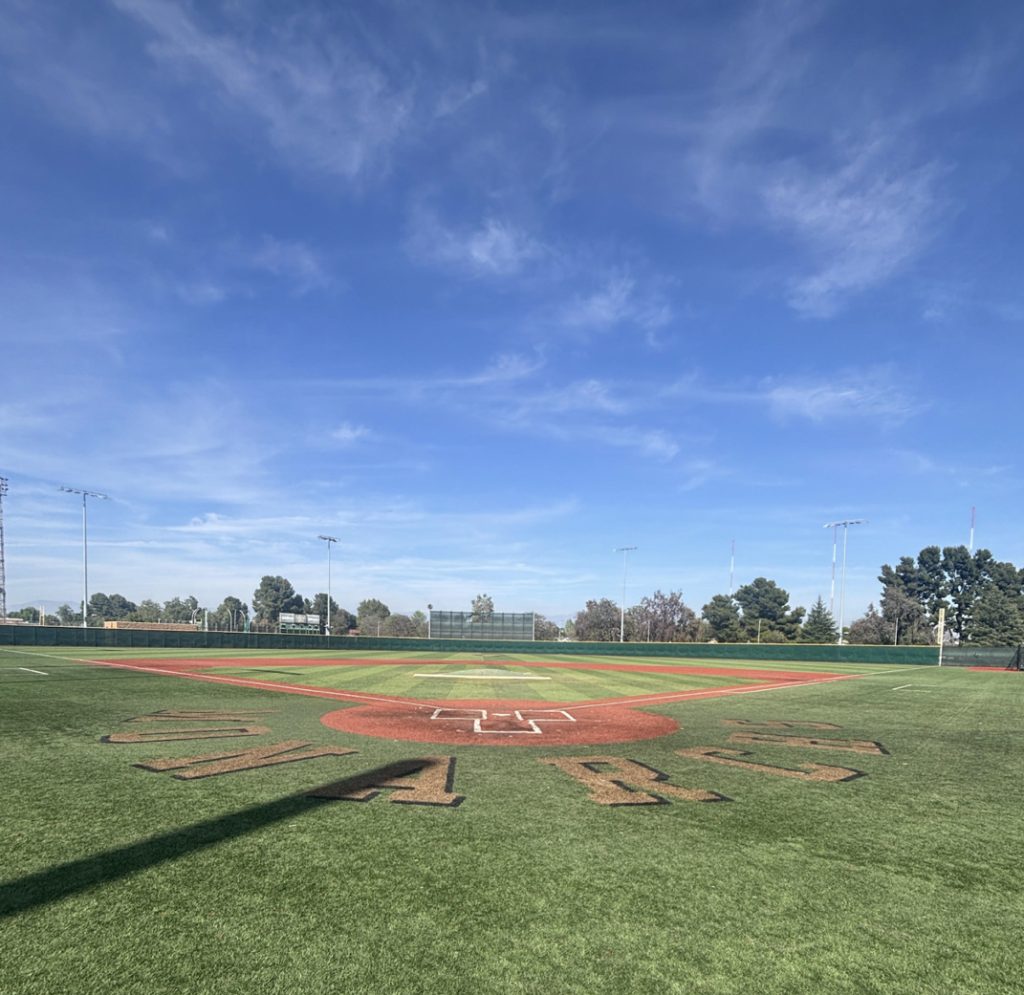
Baseball’s ‘Last Chance U’
An inside look at the Los Angeles Valley College 2025 Monarchs’ baseball team and a new ruling that has the potential to make junior college a more desirable option for high school baseball players.
By: Aaron Goldstein
Monarch Stadium
Photo by Aaron Goldstein
Los Angeles Valley College Baseball Field
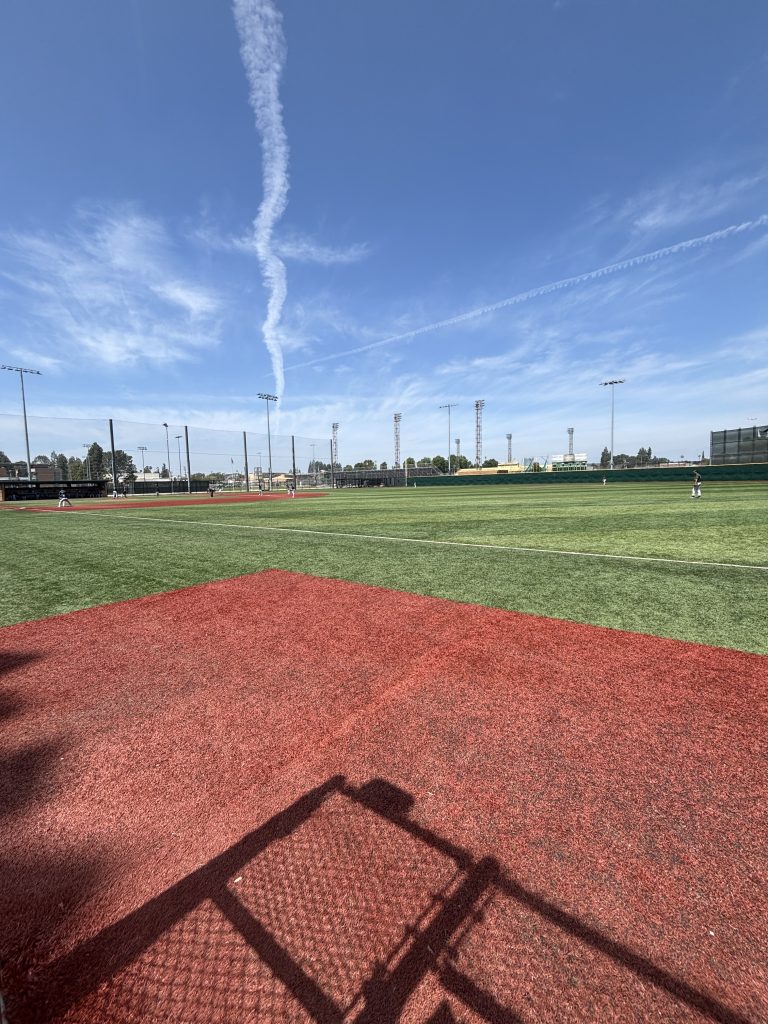
Monarch Stadium (bullpen view)
Photo by Aaron Goldstein

Monarch Stadium (backstop view)
Photo by Aaron Goldstein
Junior college baseball
Despite some successful junior college athletes in years past, playing sports at a community college has been largely viewed as a last ditch effort for student athletes to achieve their dream of playing at a division Ⅰ school or even one day making it to the professional ranks. However, a new rule passed by the National Collegiate Athletic Association (NCAA) has the potential to change the landscape of junior college athletics and specifically baseball for the foreseeable future.
Click here to learn more about junior college athletics and specifically baseball
In the past, junior college baseball has not been an extremely desirable option for student-athletes looking to play after high school. Craig Keilitz, the executive director of the American Baseball Coaches Association, understands that high school players often have lofty goals that may extend beyond what they believe a junior college program can offer them.
Craig Keilitz of the American Baseball Coaches Association

Image Courtesy of Wake Forest Athletics Website
“I don’t want to disparage junior college, but a lot of high school student athletes, baseball players or whatever sport, they don’t dream about playing at a junior college, they dream about playing at Texas or Florida or [Texas] A&M,” says Keilitz. He also states: “I think most kids would want to go to division Ⅰ if they can, and if they can’t, they may choose that route, but there are a lot of opportunities.” Elite baseball players are driven towards committing to a well regarded division Ⅰ baseball program directly after their high school career ends. However, a new ruling has the potential to make junior college a more desirable destination for these recruits.
“I don’t want to disparage junior college, but a lot of high school student athletes, baseball players or whatever sport, they don’t dream about playing at a junior college, they dream about playing at Texas or Florida or [Texas] A&M.” -Craig Keilitz
New NCAA ruling
In December 2024, a new ruling passed by a federal judge in Tennessee decrees that junior college years do not impact a student athletes eligibility at other levels of competition, including division Ⅰ. The details of the ruling and the impact it will have on student athletes across the United States are in the process of being sorted out. In terms of it’s immediate impact on collegiate sports, the NCAA Division Ⅰ Board of Directors approved an extra year of eligibility only for the 2025-2026 season for student athletes who previously competed at junior college for one or more years and would have otherwise exhausted their eligibility after the current season. This grants former and current junior college players an extra year of playing their sport at the NCAA level. In the case that the ruling goes through next season, players can play two years at a junior college and transfer to a four year university and be considered true freshman. This ruling makes junior colleges a more desirable destination for student athletes hoping to advance their careers to the division Ⅰ level.
“It’ll be interesting to see how many student-athletes would go from high school to a junior college that don’t need to go to a junior college because of academics; they choose to go there,” says Keilitz regarding the NCAA ruling. He later states: “So I think it certainly would help, but to what degree I’m not positive.”
“It’ll be interesting to see how many student athletes would go from high school to a junior college that don’t need to go to a junior college because of academics; they choose to go there.” -Craig Keilitz
Keilitz believes that now more than ever, athletes will choose to attend junior colleges directly after high school for solely athletic purposes. The ruling gives junior college players a competitive edge over those who decide to go straight into NCAA baseball, as the community college players have more time to develop physically without losing eligibility. They can work on their skills on the baseball diamond and get stronger in the weight room without forfeiting their eligibility. Players who attend programs such as Los Angeles Valley College (L.A.V.C.) in California have a potential advantage over their NCAA counterparts who graduated high school in the same year.
Introduction to Los Angeles Valley College baseball
Monarchs’ logo
Image courtesy of L.A.V.C. baseball website
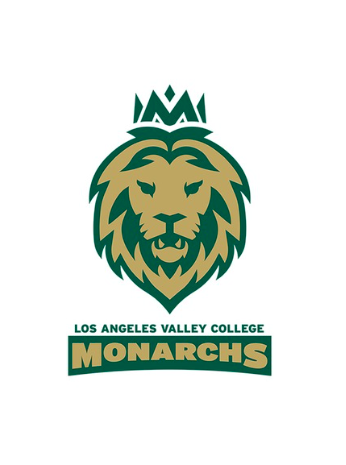
Monarch Stadium (right field foul pole view)
Photo by Aaron Goldstein

L.A.V.C. is a junior college baseball program that competes in the Western State Conference of the California Community College Athletic Association. The Monarchs are part of the National Junior College Athletic Association. Their current head coach is Will Skett, their pitching coach is Alex FaGalde, and their batting coach is Mike Hymes. During the 2024 season, the Monarchs finished 37-8 overall and 20-1 in conference, claiming the Western State Conference championship. The Monarchs were knocked out of the playoffs by Saddleback College in the second round of the California State Playoffs.
Monarchs from the 2024 team who are currently playing division Ⅰ baseball
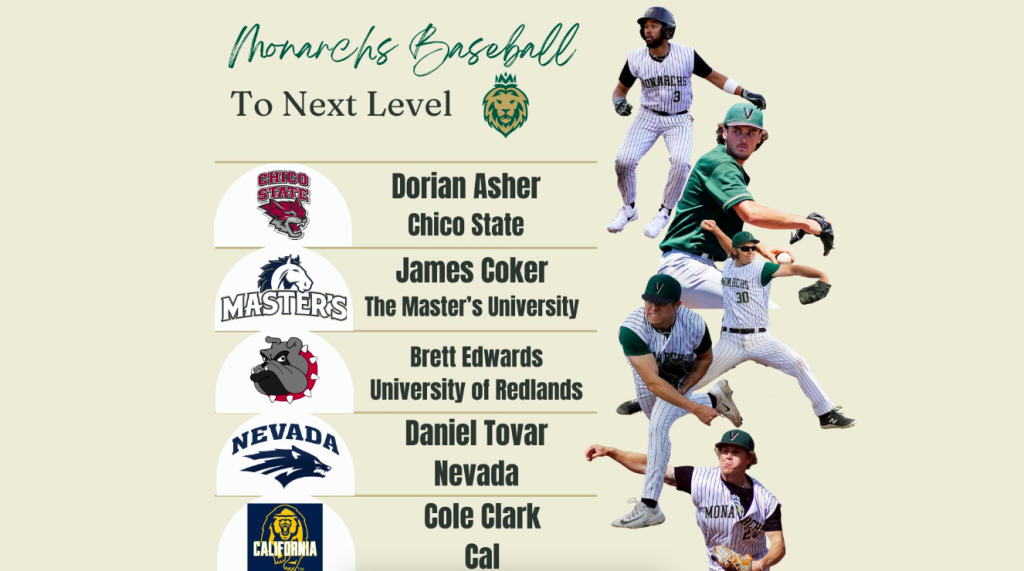
Image courtesy of Los Angeles Valley College athletics website
Over the past couple years, L.A.V.C. has sent a plethora of players to division Ⅰ schools and they are known as one of the best junior college baseball programs in California. Under Coach Skett and his staff, the Monarchs have a track record of sending student athletes to play for division Ⅰ institutions. Five Monarchs from the 2024 team (pictured above) are now on division Ⅰ baseball rosters.
Notable recent L.A.V.C. baseball alumni
Below are three former Monarchs who are playing division Ⅰ baseball or beyond as of the 2025 season. Click on their image for their updated statistics and team information from the 2025 baseball season.
Kyle Ayers
(Image Courtesy of Texas Christian
University baseball website)

- Attended Notre Dame High School in Sherman Oaks, California.
- Right handed starting pitcher.
- Played for L.A.V.C. during the 2022 baseball season.
- Played division Ⅰ baseball at University of Houston (2023) and then Texas Christian University (2024).
- Drafted in the 13th round of the 2024 MLB draft to the Arizona Diamondbacks organization.
Maddox Latta
(Image Courtesy of California State
Fullerton baseball website)

- Attended Chaminade College Prepatory High School in West Hills, California.
- Shortstop and second baseman.
- Played for L.A.V.C. during the 2022 baseball season.
- Won conference most valuable player in 2022 after posting a .358 batting average, seven home runs, and 18 stolen bases in 35 games played.
- Currently a senior and starting shortstop for California State Fullerton, a division Ⅰ program in the Big West Conference.
Daniel Tovar
(Image Courtesy of University of Nevada
baseball website)

- Attended Crespi Carmelite High School in Encino, California.
- Right handed relief pitcher.
- Played for L.A.V.C. during the 2023 and 2024 seasons.
- Appeared in 15 games on the mound in 2024 and posted a 3.30 earned run average with 85 strikeouts in 79 innings pitched.
- Currently a relief pitcher for the University of Nevada, a division Ⅰ program in the Mountain West Conference.
Los Angeles Valley College background
Information courtesy of Los Angeles Valley College website
L.A.V.C. background information
Click here to learn more about Los Angeles Valley College
Facts about L.A.V.C.
– Founded in 1949
– Located in Glenn Valley, California
– Campus is 105 acres
– Has over 20,000 students




